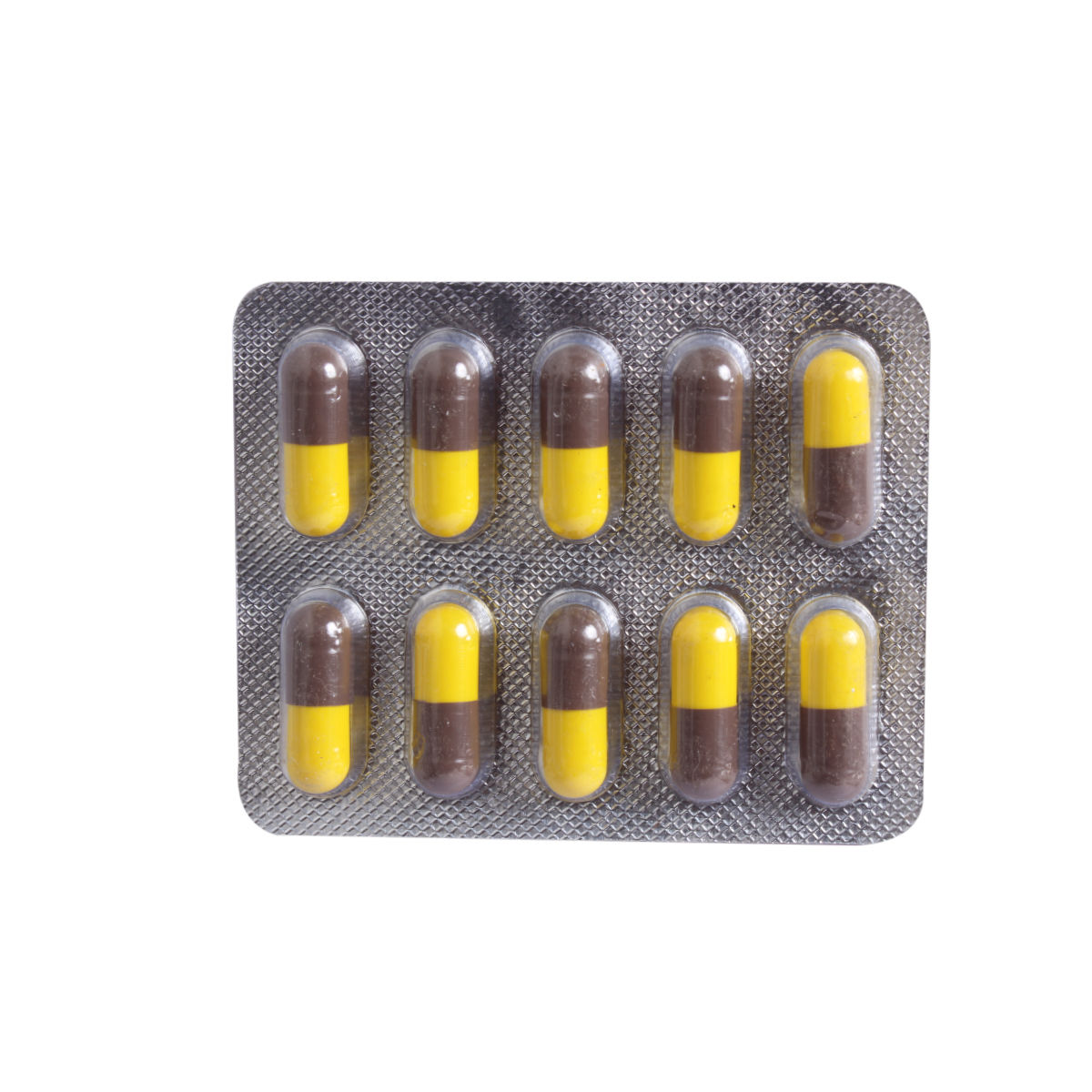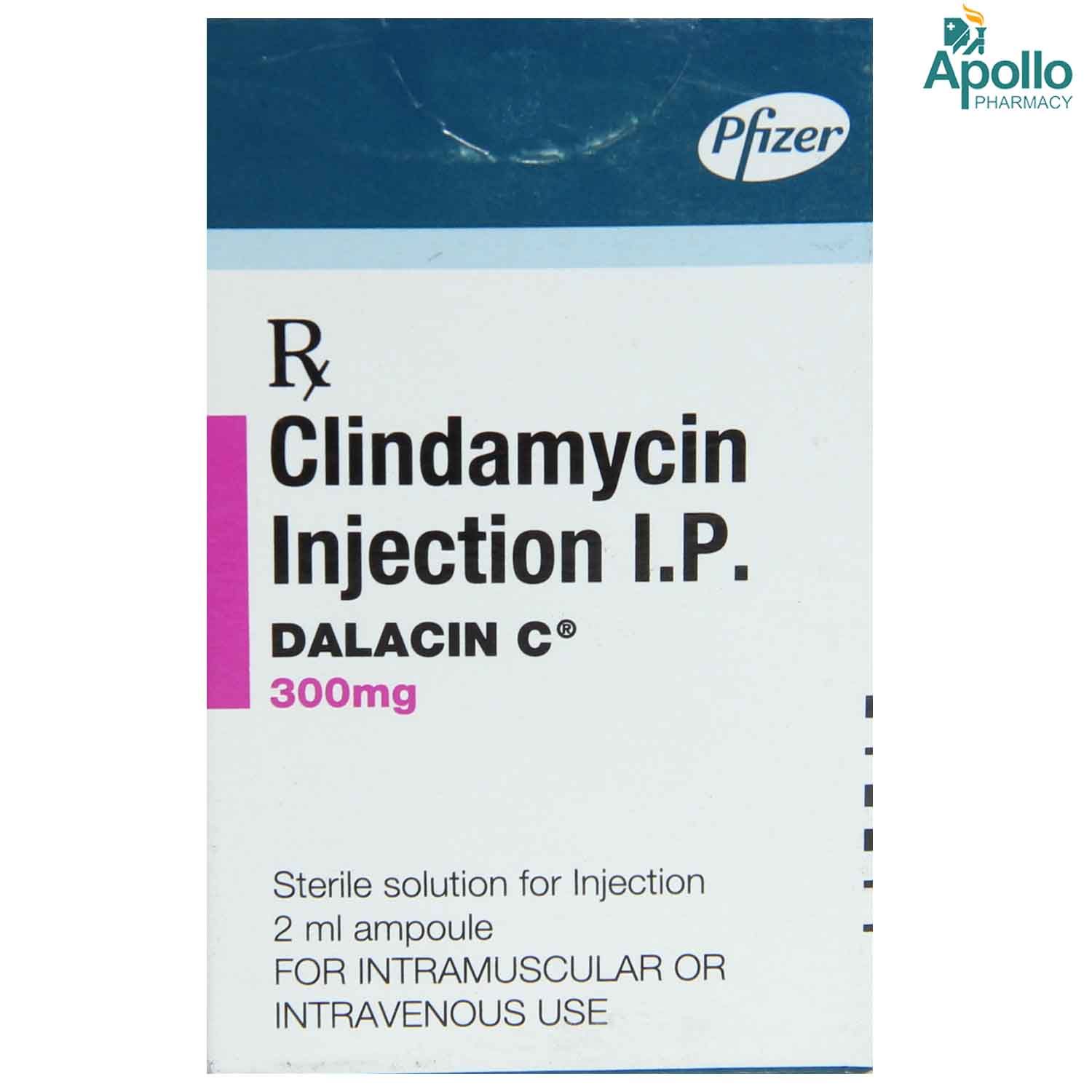Damclid 300 Inj
₹76.5*
MRP ₹85
10% off
₹72.25*
MRP ₹85
15% CB
₹12.75 cashback(15%)
Free Delivery
With Circle membership
(Inclusive of all Taxes)
This offer price is valid on orders above ₹800. Apply coupon PHARMA10/PHARMA18 (excluding restricted items)
Know Your Delivery Time
Provide Delivery Location

Available Offers
 Prescription drug
Prescription drugWhats That

Secure Payment

India's Most Trusted Pharmacy

Genuine Products
Composition :
Manufacturer/Marketer :
Consume Type :
Return Policy :
Expires on or after :
About Damclid 300 Inj
Damclid 300 Inj belongs to the class of 'antibiotics', primarily used to treat serious bacterial infections such as lower respiratory tract infections like pneumonia, empyema, and lung abscess; gynaecological infections like endometritis, nongonococcal tubo-ovarian abscess, pelvic cellulitis, and postsurgical vaginal cuff infection; intra-abdominal infections; septicaemia or sepsis (blood poisoning by bacteria), and bone and joint infections. Bacterial infection occurs when harmful bacteria grow in the body and causes illness. It can infect any part of the body and multiply very quickly.
Damclid 300 Inj contains 'Clindamycin' that works by preventing bacterial protein synthesis, leading to the inhibition of bacterial growth. It shows a bacteriostatic effect that stops bacterial reproduction. Damclid 300 Inj effectively treats infections caused by gram-positive and anaerobic (living without air) bacteria, including susceptible strains of Staphylococcus aureus, Streptococcus pneumoniae, and Clostridium perfringens.
Damclid 300 Inj will be administered by a healthcare professional. Damclid 300 Inj may cause side effects, although not everybody gets them. Common side effects of Damclid 300 Inj include stomach pain, nausea, vomiting, diarrhoea, heartburn, skin rash, pain and swelling at the injection site, and vaginal itching or discharge. Most of these side effects do not require medical attention and gradually resolve over time. If these side effects persist longer, please consult your doctor.
Brief your medical history to the doctor if you are allergic to any of the components in Damclid 300 Inj. Let your doctor know if you have any liver disease, kidney disease, yellow food dye allergy, colitis (colon inflammation), severe stomach cramps, diarrhoea, and allergic conditions (asthma, hay fever, eczema). Do not use Damclid 300 Inj while getting vaccinated with live bacterial vaccines (typhoid vaccine) since Damclid 300 Inj may affect the vaccine's activity. Damclid 300 Inj should be used only with a doctor's advice during pregnancy and breastfeeding.
Uses of Damclid 300 Inj
Directions for Use
Medicinal Benefits
Damclid 300 Inj is an antibiotic that treats severe/serious bacterial infections. It works by inhibiting bacterial protein synthesis, which inhibits bacterial growth. It shows a bacteriostatic effect, which stops bacterial reproduction but doesn't kill them. Damclid 300 Inj effectively treats infections caused by gram-positive and anaerobic (living without air) bacteria, including susceptible strains of Staphylococcus aureus, Streptococcus pneumoniae, and Clostridium perfringens. Damclid 300 Inj is useful in treating lower respiratory tract infections like pneumonia, empyema, and lung abscess; gynaecological infections like endometritis, nongonococcal tubo-ovarian abscess, pelvic cellulitis, and postsurgical vaginal cuff infection; intra-abdominal infections; septicaemia or sepsis (blood poisoning by bacteria), and bone and joint infections.
How Damclid 300 Inj Works
Storage
Side Effects of Damclid 300 Inj
- Pain and swelling at the injection site
- Stomach pain
- Nausea
- Vomiting
- Diarrhoea
- Heartburn
- Skin rash
- Vaginal itching or discharge
What if I have taken an overdose of Damclid 300 Inj
Drug Warnings
Do not use Damclid 300 Inj if you are allergic to any of its components. Let your doctor know if you have any liver or kidney diseases, gastrointestinal diseases (colitis, Clostridium difficile-associated diarrhoea), yellow food dye allergy, and allergic conditions (asthma, hay fever, eczema). Do not use Damclid 300 Inj while getting vaccinated with live bacterial vaccines (typhoid vaccine) since Damclid 300 Inj may affect the vaccine's activity. Pregnant and breastfeeding women should consult their doctor before taking Damclid 300 Inj. Avoid alcohol consumption to prevent any undesired effects while using Damclid 300 Inj.
Diet & Lifestyle Advise
- Wash your hands often to maintain cleanliness.
- Avoid sharing personal items like shaving razors.
- Include whole-grain foods like multigrain bread and brown rice in your diet.
- Taking probiotics after an antibiotic treatment reduces the risk of antibiotic-associated diarrhoea.
- Try taking yoghurt, cheese, sauerkraut, and kimchi that help restore the intestine's good bacteria.
- Include more fibre-enriched food in your diet that is easily digested by your gut bacteria. Fibre foods may also help restore healthy gut bacteria after a course of antibiotics.
- Avoid intake of alcoholic beverages as it may cause dehydration and affect your sleep.
- Manage stress, eat healthily, drink plenty of water, exercise regularly, and get plenty of sleep.
Habit Forming
Therapeutic Class
Damclid 300 Inj Substitute

Dalacin C 300 mg Capsule 10's
₹26.18per tabletClindatec 300 mg Capsule 8's
₹25.31per tabletClindasure 300mg Capsule 10's
by AYUR
₹26.78per tabletClincin 300 mg Capsule 10's
₹26.78per tabletCamyda 300 Capsule 10's
by AYUR
₹26.78per tablet
Product Substitutes
Alcohol
Caution
Avoid taking alcohol while using Damclid 300 Inj since it may worsen the side effects.
Pregnancy
Caution
Please consult your doctor before taking Damclid 300 Inj if you are pregnant or planning to conceive.
Breast Feeding
Caution
Damclid 300 Inj can be excreted into breast milk when used by a nursing mother. Please consult your doctor before taking Damclid 300 Inj if you are breastfeeding.
Driving
Caution
There is limited data on how Damclid 300 Inj affects your driving ability. Please seek medical advice for more information.
Liver
Caution
Let your doctor know if you have any history of liver diseases before taking Damclid 300 Inj since it may cause jaundice and abnormal liver function tests.
Kidney
Caution
Let your doctor know if you have any history of kidney diseases before taking Damclid 300 Inj.
Children
Caution
Damclid 300 Inj should be used in children only when prescribed by a doctor. Your doctor will prescribe Damclid 300 Inj depending on the child's age and body weight.
FAQs
Country of origin
Manufacturer/Marketer address
Disclaimer
Author Details
We provide you with authentic, trustworthy and relevant information
Reference
- https://www.webmd.com/drugs/2/drug-931/clindamycin-injection/details
- https://www.drugs.com/clindamycin.html#side-effects
- https://www.hpra.ie/img/uploaded/swedocuments/2132447.PPA1151_156_001.68048af4-da55-4413-9a20-e6d58b4c2edd.000001Clindamycin%20leaflet.140204.pdf
- https://www.accessdata.fda.gov/drugsatfda_docs/label/2008/050441s055,050639s016lbl.pdf




















